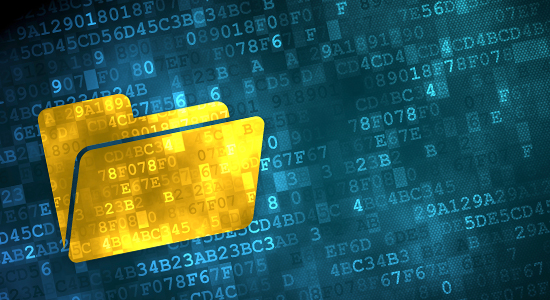
June 7, 2017 – With the never-ending cycle of new innovations in technology, lawyers have a crucial need to stay current with the various aspects of e-discovery. Here are some quality resources for staying current with e-discovery, as well as blogs worth monitoring.
General Information
The Basics of E-discovery – This guide, written by Exterro (a third-party vendor), is well written and includes a variety of graphics. It is available via their website or the entire guide can be downloaded as a PDF. It is divided into nine chapters including data preservation, legal hold, early case assessment, and document review.
 Bev Butula is Director of Library of Services at Davis & Kuelthau, Milwaukee. She is a past president of the Law Librarians Association of Wisconsin (LLAW) and was formerly a litigation paralegal. LLAW's Public Relations Committee coordinates regular contributions by its members to InsideTrack.
Bev Butula is Director of Library of Services at Davis & Kuelthau, Milwaukee. She is a past president of the Law Librarians Association of Wisconsin (LLAW) and was formerly a litigation paralegal. LLAW's Public Relations Committee coordinates regular contributions by its members to InsideTrack.
Discovering E-discovery – The librarians at Florida State University College of Law maintain this libguide, which is a compilation of evaluated resources, and is an excellent option when conducting research. It is a one-stop collection of valuable information on e-discovery.
Findlaw’s Electronic Discovery – The “legal professionals” version of Findlaw provides a vast amount of resources within their Legal Technology Center. One such resource is dedicated to e-discovery. The website links to a large collection of free articles with content tailored to both legal and information technology professionals. Findlaw also maintains an eDiscovery guide covering topics ranging from records management to collection to review.
EDRM – In 2016, Duke University Law School acquired EDRM, an education and standards organization. The recently redesigned website states, “EDRM has delivered leadership, standards, best practices, tools, guides, and test data sets to improve e-discovery and information governance. Member individuals, law firms, corporations, and government organizations actively contribute to the direction of EDRM.”
The EDRM website is a treasure trove of information. The “Resources” section includes budget calculators, links to 50 state surveys on data privacy and protection laws, glossaries, project guides, audit questionnaires, and various white papers. The “Frameworks & Standards” section offers practical guidance documents.
Association of Certified E-discovery Specialists – A “member organization for professionals in the private and public sectors who work in the field of e-discovery. ACEDS is building a community of e-discovery specialists for the exchange of ideas, guidance, training and best practices, and offers e-discovery certification.”
The ACEDS maintains a collection of relevant news stories and whitepapers. The section entitled “industry news” is updated consistently with general and state-specific information. It also offers a calendar identifying a large selection of webinars offered by both ACEDS and third-party vendors.
Sedona Conference – The e-discovery experts at the Sedona Conference released the third edition of the “Sedona Principles” for public comment in late March. The Sedona Principles are considered the “best practices for addressing electronic document production.” Download the third directly from the Conference website. View additional news and publications on the e-discovery publication page.
Apps, Articles, and Publications
eDiscovery Assistant – This fee-based app contains e-discovery specific case law, rules, checklists, and forms. The app provides access to thousands of relevant cases and features numerous checklists to assist in various aspects of the e-discovery process. They also maintain a blog entitled “eDiscovery Bytes.”
e-Discovery for Everyone – Written by Ralph Losey, this recent American Bar Association publication “is a valuable resource that makes e-discovery accessible for any legal professional, no matter their technology and law experience.” It is written to make the process easier to digest no matter your prior experience.
The January 2017 edition of the Wisconsin Lawyer magazine included an article entitled, “Ethics, Professionalism, and E-discovery.” Written by Timothy Edwards, it discusses the competence duty of lawyers, and how it specifically relates to e-discovery.
Blogs and Additional Reading
Electronic Discovery Law – Written by K&L Gates, this blog is highly respected and viewed as one of the best for keeping current on new e-discovery decisions. Other resources featured on the website include a 50-state survey on e-discovery rules, a listing of U.S. district court local rules on e-discovery issues, and the perennial favorite – K&L Gates Electronic Discovery Case Database.
e-Discovery Team – The blog posts found on this site are more like mini-webinars. A significant amount of detail and explanation is provided with each entry. The author, Ralph Losey, has also written several books on e-discovery.
Complex Discovery – This blog, written by Rob Robinson, presents the reader with a wide range of information and resources. The website provides much more than news. It includes education opportunities, upcoming relevant events, surveys, and a thorough list of e-discovery providers.
Next Gen eDiscovery Law & Tech Blog – Not as prolific of an author as some fellow bloggers, the author nonetheless writes detailed posts addressing issues important to e-discovery.
Where to Find Out More
This is just a small sampling of respected resources and far from an exhaustive list. Because this is a multi-faceted topic, researchers may look for a scholarly article on a specific aspect of e-discovery or one of many quality treatises. Some well-designed resources were not included in this article because the content is quite dated. When conducting any online research, check to see how current the information is, how often it is updated, and the experience of the author.
